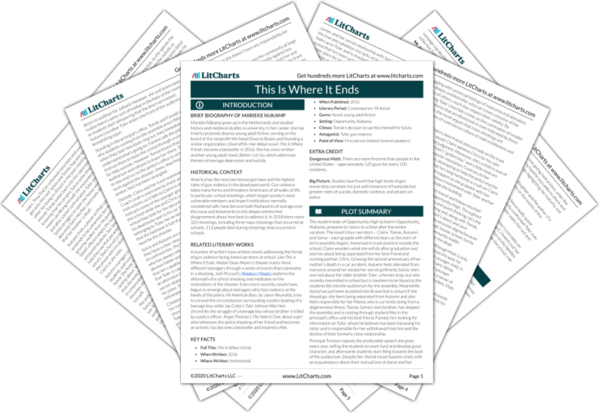AI ToolsNew
Tools to make learning and teaching easier
|
Previous
Chapter 5
|
This Is Where It Ends: Chapter 6 Summary & Analysis |
Next
Chapter 7
|


Upgrade to unlock the analysis and theme tracking for all of This Is Where It EndsThis Is Where It Ends!
Get LitCharts A+